KEITH IS HARDLY MORE THAN A WIDE SPOT in the road—two roads actually, the intersection of A8 and A66. The drive from Murray Bridge was nothing to write home about—only the “Silo Art” in Coonalpyn was worthy of a stop—and a photo. But Keith is the nearest place with a decent AirBnB to Coorong National Park where Connie hoped to track down a couple of recalcitrant birds.

Coonalpyn Silo Art, the next "Big Thing" in Oz

While meanwhile across the street . . .
Our cottage is very comfortable but nothing very special either. We are surrounded by gum trees, wheat fields, birds and about a billion flies. On one of her morning walks Connie ran into this guy. Mulga, aka Brown Snakes, are among the five most poisonous in Australia. On a less dangerous note as we were leaving for Coorong on Thursday morning a flock of three or four hundred Straw-Necked Ibis were busy scouring the recently harvested field for leftovers while some Sulphur-crested Cockatoos looked on.
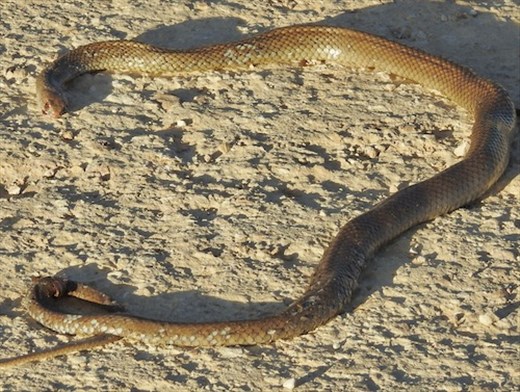
Mulga Snake or Brown Snake; a bad dude either way
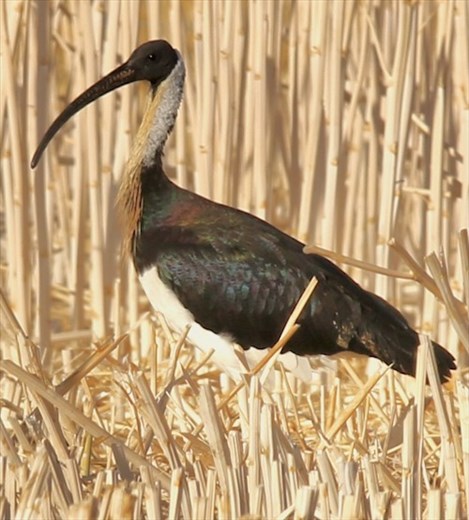
Straw-Necked Ibis
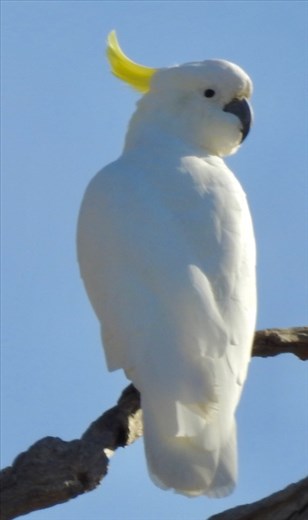
Sulphur-Crested Cockatoo
It’s about 100 kilometers from Keith to Coorong by sealed road, slightly shorter if you don’t mind dust and potholes. Our first trip on Wednesday the target birds were Banded Stilts which had been reported near Parnka Point. There were zillions of birds, mostly Silver Gulls and Grey Teal with a smattering of Red-necked Avocets, Australian Shellducks and Great Crested Terns.

Australian Shellduck
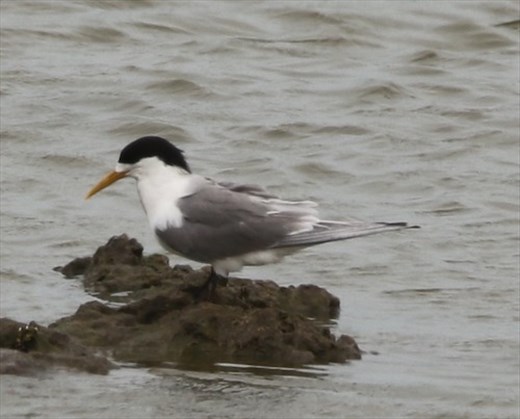
Great-Crested Tern

Australian Shellduck
We saw a dozen Banded Stilts stalking the mudflats 200 meters out, a long way even for my 600mm lens. While searching for a better vantage I blundered into some interesting plants with natural Velcro seeds—I foresee hours of removing burrs ahead—but we got some decent photos. And back at the car we realized this group of birds huddled together across the water were Banded Stilts.
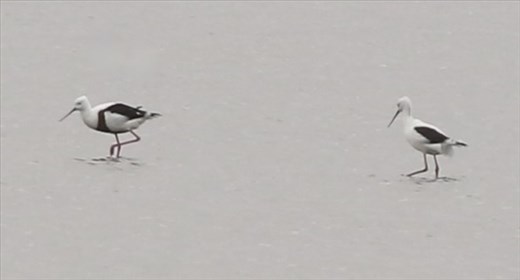
Banded Stilts at 200 meters
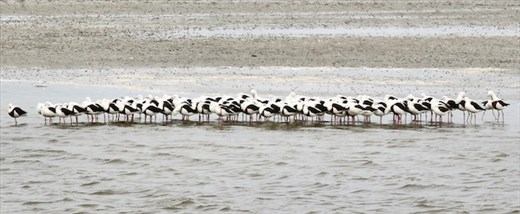
Banded Stilts all in a Row
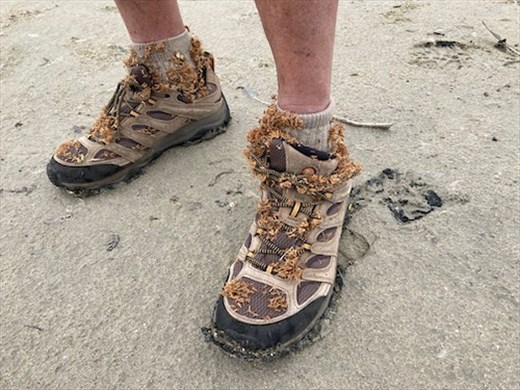
Watch where you walk
On our second visit, this time to the Salt Creek area, the Brush Bronzewing and Purple-gaped Honeyeater didn’t respond to Connie’s recording but a Common Bronzewing gave us a look-see. Our other target, the Rufous Bristlebird is seldom seen, its presence noted only by its distinctive call. I couldn’t hear it—blame it on the wind—but dutifully followed Connie as she tracked it by sound. Or so she says.
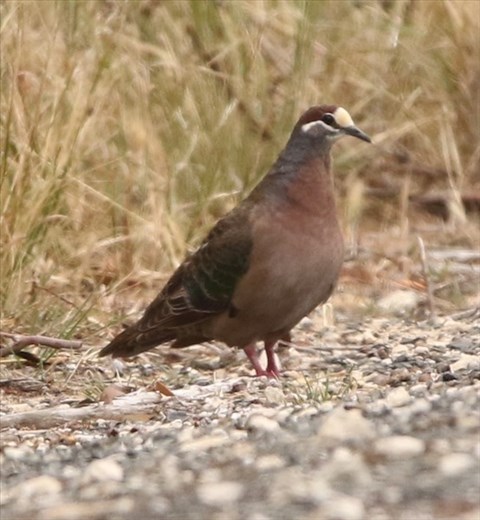
Common Bronzewing—close but no cigar
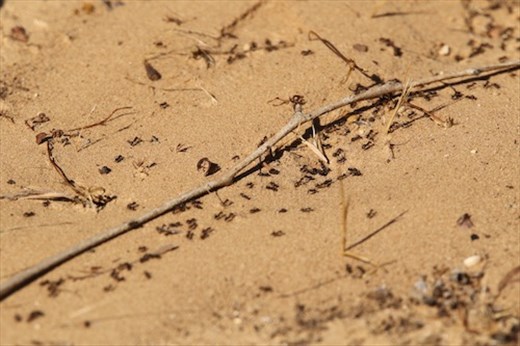
If it's not Flies it's Ants
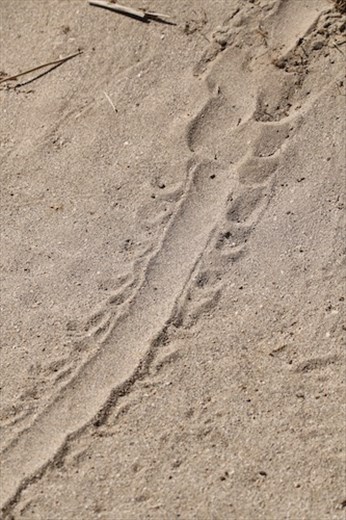
Tracks of a Shingleback Lizard
Australia’s infamous flies quickly found us. I have been able to ignore most of them, even the ones that walk across my sunglasses. It’s the ones who go for the eyes, ears and mouth that drive me crazy. And while you are stopped to swat the flies you are most likely standing on an anthill or among columns of ants . . . commuting to work, perhaps?